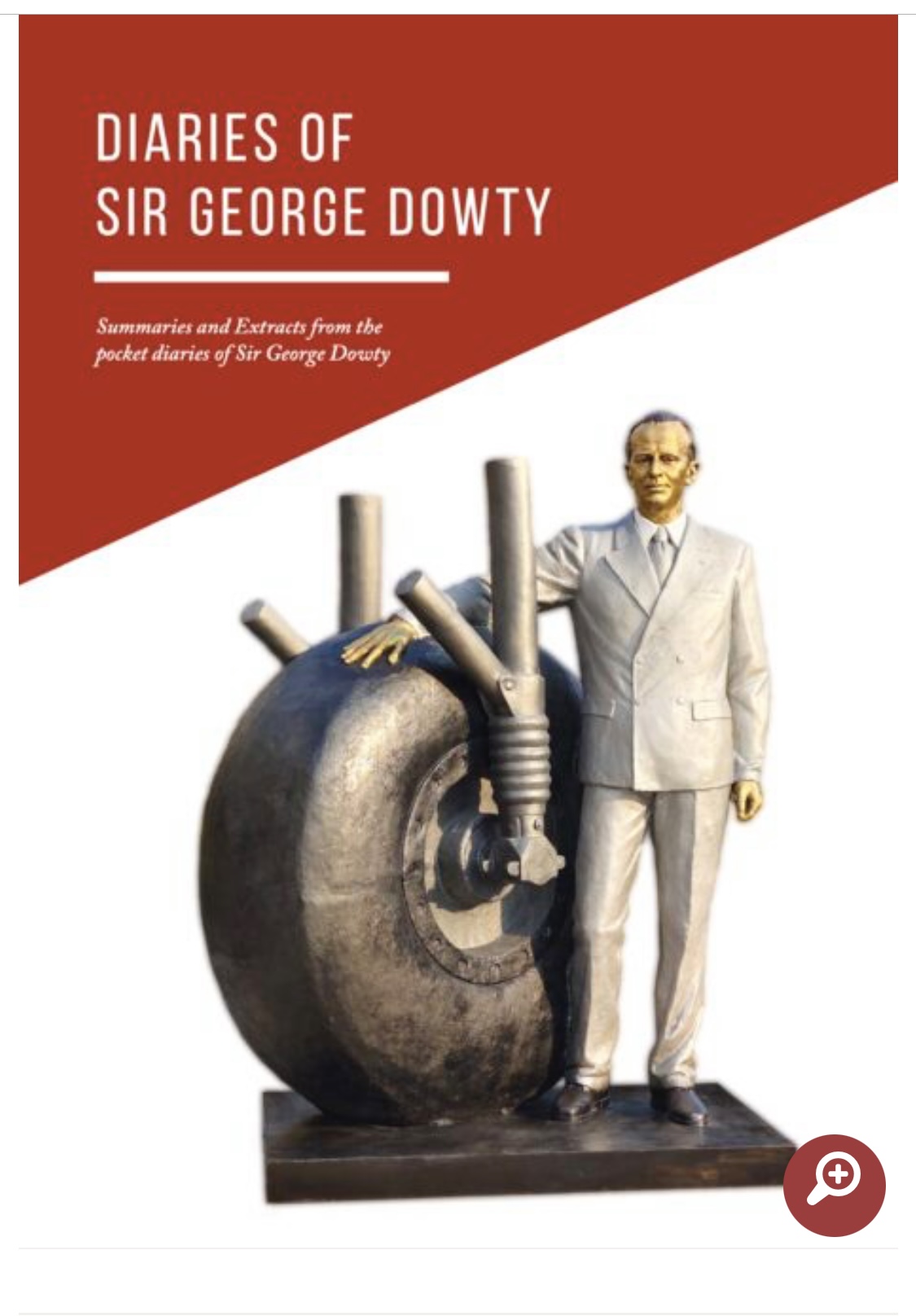
 











|
Signature Sponsor


April 23, 2025 - Few 20th century industrialists have received such international recognition, reflecting the magnitude of his achievements. The diaries tell the remarkable story of how George Dowty progressed from an apprentice in a Worcester, England, engineering company, forming a business in 1931 in the midst of a world-wide slump, to become one of the world’s foremost engineers. Sir George was well-known in mining circles for introducing the first hydraulic props for supporting the roof of coal mines in 1946. He took the Dowty hydraulic undercarriage from Lancaster bombers used in World War II and modified it for use underground. Later, he developed the units further by introducing these hydraulic props into steel frames with roof canopies to make powered supports that he called Dowty Roofmasters. These powered supports were the fore-runners of more rigid chocks then became the heavy-duty shield supports, which are used today around the globe.
During the 1960s, 1970s and 1980s, Dowty Mining Equipment was a major supplier of longwall roof supports, face conveyors and belt conveyors to the world-wide mining industry. In the U.S. readers of CoalZoom will particularly remember Dowty Corporation of Zelienople, PA led by the late Matt Spedding and his team comprising the well-known characters: the late Harry Martin, Bill Harrison, Alan Peacock and Jim Bond. The book edited by Sir George Dowty’s last secretary is now available containing summaries of the dairies he kept covering the years 1919 until his passing in 1975. The initial response to the release of the Sir George Dowty Diary book has been most enthusiastic, both in the United Kingdom and around the world. It is a most fitting accompaniment to his statue, which was erected a year ago. Copies of this hard backed book cost $25.00 including postage and can be obtained by emailing martinrobins@btinternet.com. |
 










|
